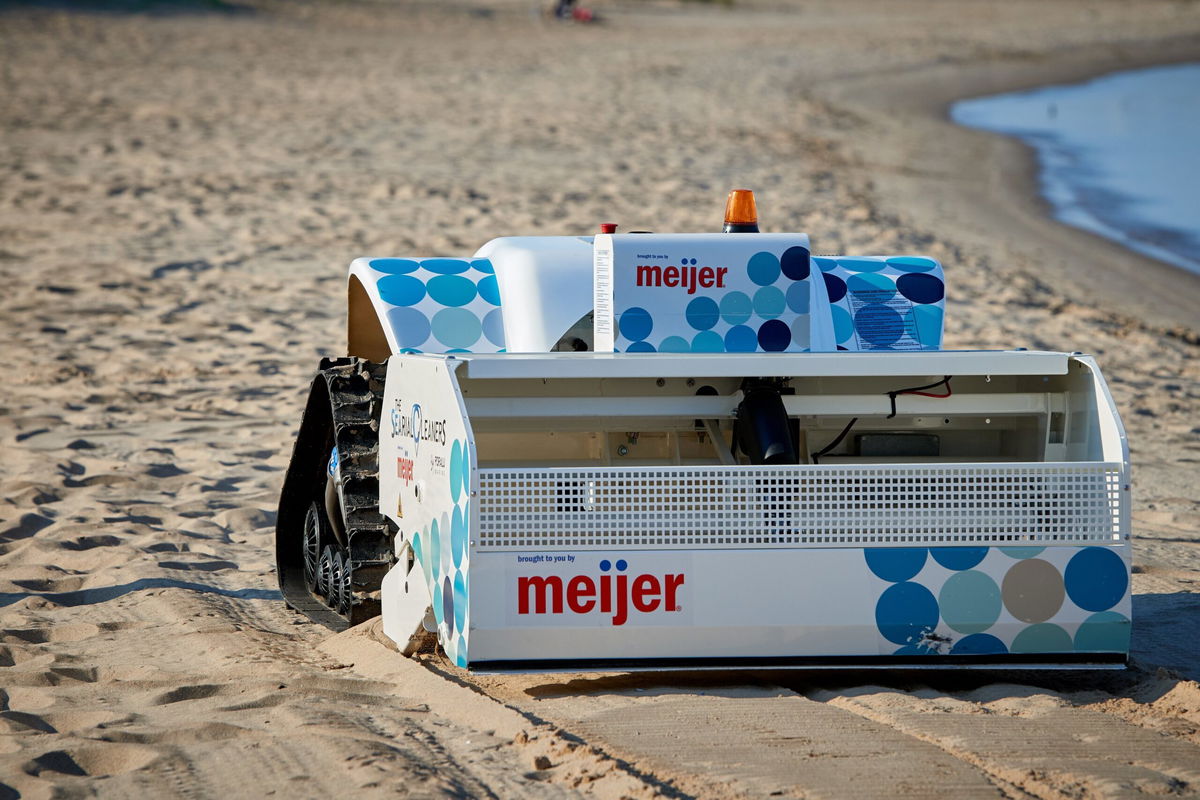Supermarket chain Meijer unveils beach, water cleaning devices

Meijer is helping clean up Midwestern beaches and waterways with innovative technology.
By Anna Muckenfuss
Click here for updates on this story
GRAND RAPIDS, Michigan (WNEM) — Meijer, a Midwest staple, is partnering up with the Great Lakes Plastic Cleanup Program to help clean up local beaches and waterways.
The initiative supports the largest development of the eco-friendly and remote-controlled devices across multiple states in the Great Lakes.
“It is a privilege to live near the Great Lakes, which inherently comes with the responsibility to protect them,” Meijer President and CEO Rick Keyes said. “Contributing to the conservation of these invaluable waterways is important to the wellbeing of our ecosystems, economy, and the communities we serve. Meijer has a strong history of environmental stewardship, and we’re pleased to partner with the CGLR because the impact these initiatives will make will ultimately benefit generations to come.”
Starting in August, Meijer and the CGLR are leading cleanup projects at beaches in Michigan, Ohio and Wisconsin with two innovative devices.
The BeBot, a remote-controlled beach cleaning robot, cleans 32,000 square-feet per hour. The machine rakes through sand without altering the environment and collects litter and other waste like bottles, cans, food wrapper and cigarette butts in a basket.
The Pixie Drone can be used in the water and can collect up to 200 pounds of material per use. The drone can navigate through marinas and other waterways to collect litter and other debris floating on the service. The robot can also collect data, like temperature, pH, salinity, turbidity, and dissolved oxygen.
Representatives from the Grand Valley State University Annis Water Resources Institute will operate the equipment.
“Microplastics have become one of the most pressing issues facing our waterways, both in the Great Lakes and on a global scale; we are both excited and honored to be part of Meijer’s initiative to fund new technologies to address this problem,” said Dr. Al Steinman, the Allen and Helen Hunting Research Professor at GVSU-AWRI. “It is critical to resolve the microplastic dilemma, not only for the ecology of our local waters, but also for the economy of our coastal communities, who visit and recreate on our beaches and lakes with the expectation they are clean and pollutant-free. The BeBot and Pixie Drone will help ensure those expectations are met.”
The BeBot and Pixie Drones were funded by a $1 million donation from Meijer earlier this year.
“The Great Lakes, which are at the heart of the bi-national Great Lakes economic region, are a globally significant natural resource,” said Mark Fisher, president and CEO of CGLR. “By partnering with companies like Meijer, which shares CGLR’s strong commitment to building the region’s future sustainability and economy today, we are able to keep our beaches and waterways clean and free of plastic litter as we work to ensure the materials we use as consumers never become waste by adopting a circular economy mindset in the region.”
Please note: This content carries a strict local market embargo. If you share the same market as the contributor of this article, you may not use it on any platform.